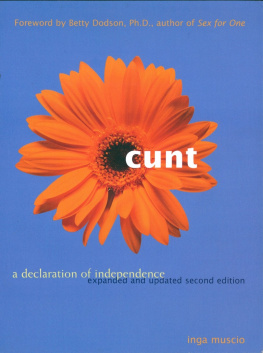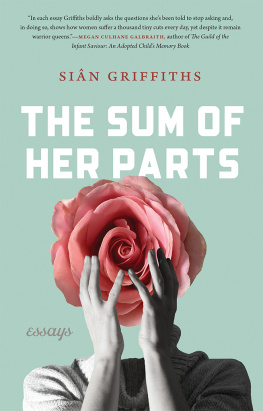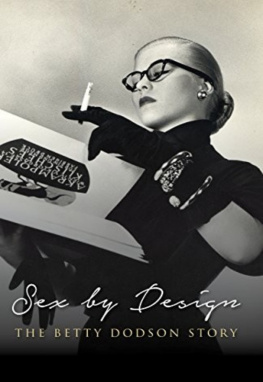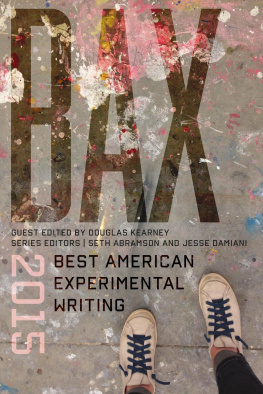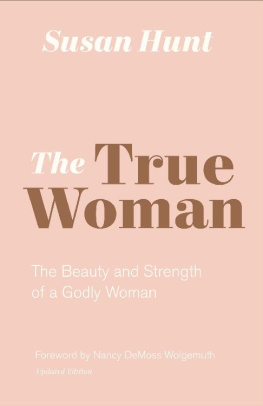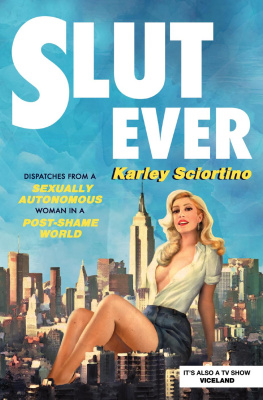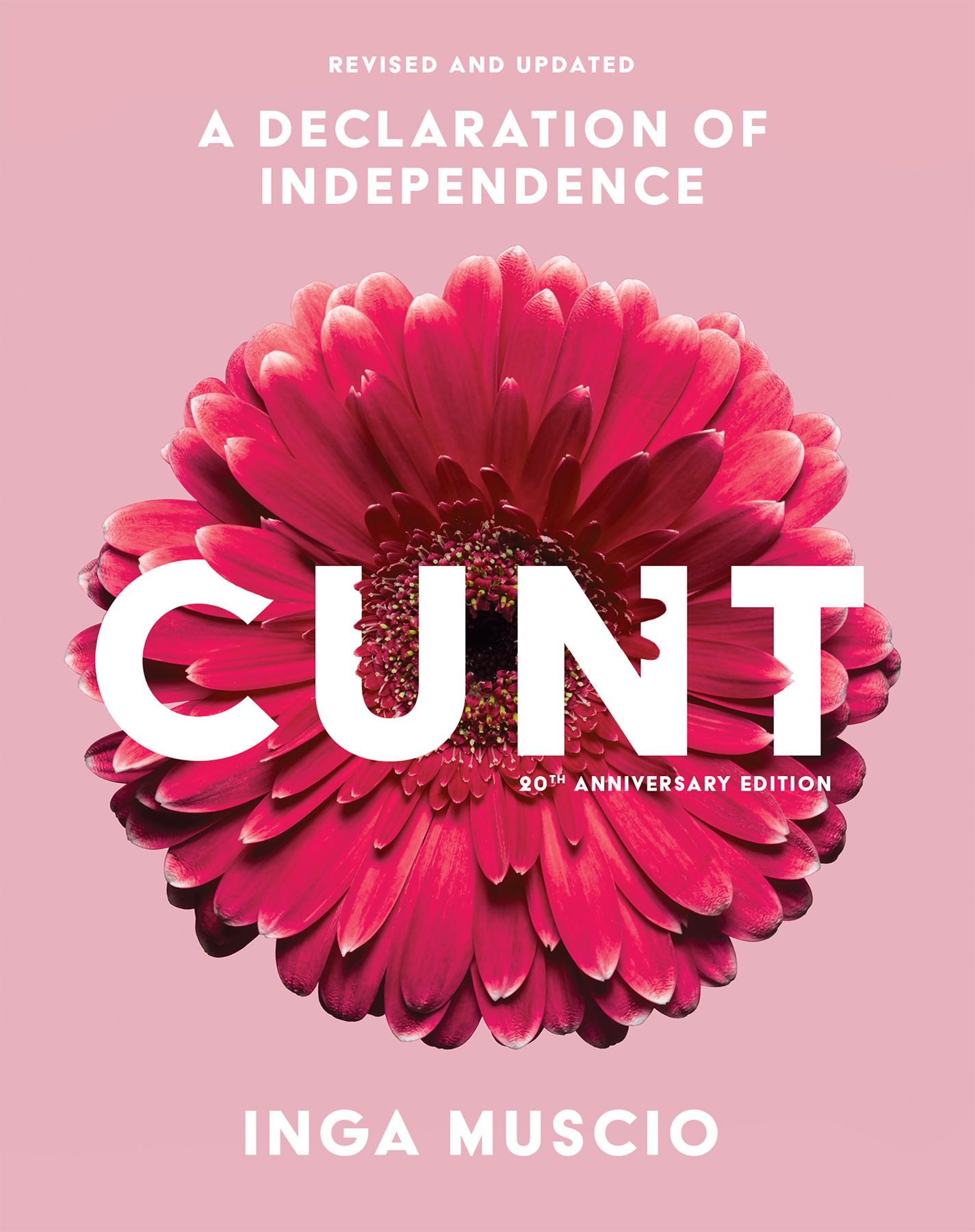Let it be known that the author is fully cognizant of the fact that many men in this world strive for womens rightful place in society. Without the work, study, love, and support of certain members of the male sector of humanity, this book would not have been as thoroughly articulated as it is. The author is grateful and indebted to many members of this sector of humanity, both living and dead.
The author would also like to acknowledge that masculine and feminine nouns and pronouns impose unrealistic limitations on lived human experience. The author looks forward to the time when our vocabulary reflects the reality and complexity of our multigendered human nature.
All that said, the author continues to be free to talk some serious shit.
Cunt is arguably the most powerful negative word in the American English language. Cunt is the ultimate one-syllable covert verbal weapon any streetwise six-year-old or passing motorist can use against a woman. Cunt refers almost exclusively to women and expresses the utmost rancor. Theres a general feeling of accord on this.
Except for some friends who know all about this book, no one calls me a cunt to communicate what a cool and sublime human being they think I am. Up until a certain time in my life, I never employed cunt to express respect or admiration.
I qualify these statements because my relationship with cunt is no longer what it once was.
One day I came home from third grade and asked my pops, Whats a wetback?
With resignation and a sigh, Dad elucidated a brief history of wetback. He concluded, Dont you ever say it.
A list of words I was similarly not to utter was forthcoming: nigger, beaner, kike, wop, jap, injun, spic. The only formal cuss word included on his roster was cunt.
Coming, as I did, from a family where us kids were allowed to strew profanities like birdseed at a wedding, I was mighty affected by all this. Why, in my fathers way of thinking, could I call someone an asshole, but not a wetback kike cunt?
The foreshadowings of a mystery.
In my childhood home, the 1965 Random House Dictionary was as much a part of dinnertime as laughter, arguments, n wanton table manners. Throughout dinner, my siblings and I were required to spell and define new vocabulary words. It was a custom I enjoyed very much.
I was raised to appreciate the power of words.
Little did I know that when I grew up, out of the billion and one words in the 1965 Random House Dictionary and beyond, there would exist no word that I could use to adequately describe myself.
This wouldnt be much of a problem except that there are millions of mes: articulate, strong, talented, raging, brilliant, grooving, sexy, expressive, dancing, singing, laughing women in America, of all shapes, hues, ethnicities, sizes, sexual orientations, and dispositions.
We are everywhere.
But what are we?
The only dimly representational identifying term that truly, authentically recognizes the actual realities of women in this world is feminism. This is a relatively youthful word. Our actual realities, on the other hand, are rooted deep. We are born with them in our hearts.
Inherited them from our mothers.
Grandmothers.
Under the influence of this dilemma, Ive asked myself whether there might be a word as old, as universal, and as deeply rooted as womens actual realities in patriarchal society. Hidden somewhere in the English language, could there be a word with power steeped in our history, a word that truly conveys the rage and hope of all women?
And, lo and behold, I return to the one formal cuss word on Pops roster:
cunt.
This book is about my reconciliation with
the word
and
the anatomical jewel.
In Part I of Cunt, The Word, I assert that the context in which cunt is presently perceived does not serve women and should therefore be thoroughly reexamined.
English is considered the universal language because it is the language of the victors of historys present telling. Seizing control of this language and manipulating it to serve your community is a very powerful thing to do, andon the basis of a variety of specific elements, such as ethnicity, musical tastes, credit limits, and/or sexualityit is done a lot in America. Creating a general, woman-centered version of the English language, however, is just insanely difficult.
Womankind is varied and vast.
But we all have cunts, and it does not matter if they are biological, surgical, or metaphorical. A cunts a cunt.
Though one word maketh not a woman-centered language, cunt is certainly a mighty potent and versatile contribution. Not to mention how deliciously satisfying it is to totally snag a reviled word and elevate it to a status that all women should rightfully experience in this society.
When viewed as a positive force in the language of womenas well as a reference to the power of the anatomical jewel that unites us allthe negative power of cunt falls in upon itself, and we are suddenly equipped with a word that describes all women, regardless of race, age, class, religion, or the degree of lesbianism we enjoy.
Part II, The Anatomical Jewel, examines why having a cunt in this society might just be worse than being called one. Our cunts bleed and have weird, unpredictable orgasms. The birthing process is painful and messy. Lordisa knows what our cunts are up to. Generally speaking, we dont understand them, we dont like them, and we often think theyre ugly.


